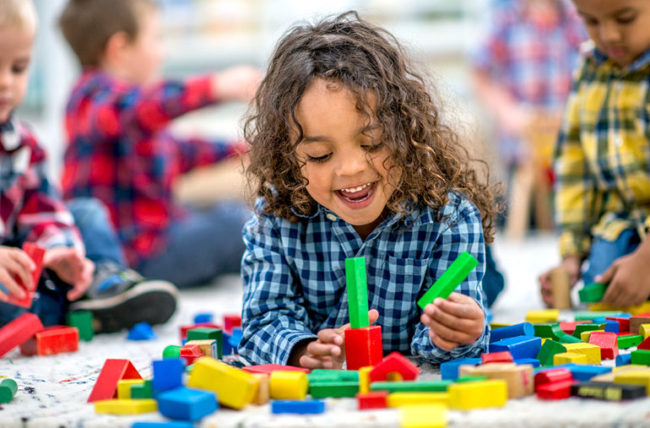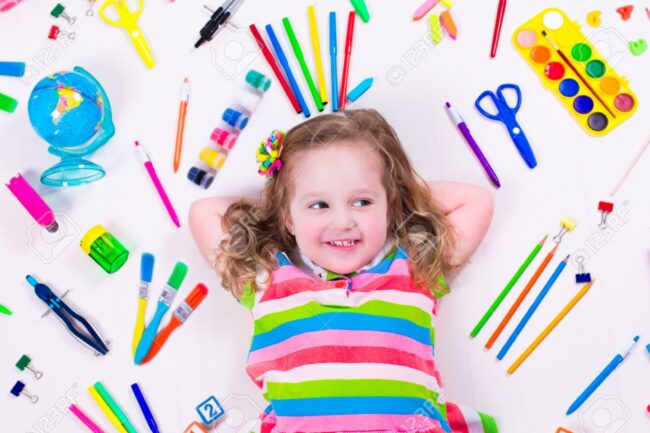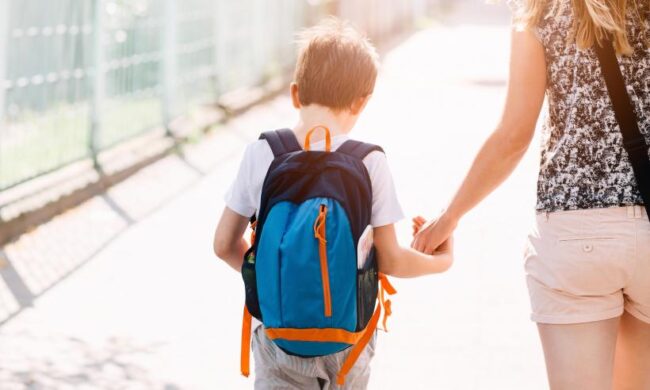Many people use the terms “daycare center” and “preschool” interchangeably. They both provide childcare but aren’t always the same in terms of educational opportunities.
The question among childhood educators and parents is whether daycare can prepare your child for his or her preschool years. And if not, how can they be ready? Most daycare centers accept children from six weeks of age and up.
Preschools usually take children once they have turned two or three years old. Parents often choose to make the switch at this age in preparation for grade school.
So, how can you be sure your little one is ready for preschool if they are currently attending daycare? Turns out it’s not as difficult as you might expect.
Keep reading here for everything you need to know.
The Transition from a Daycare Center to Preschool
If your child already attends daycare, the transition to a preschool will likely be easier on both of you. Your little one is used to being cared for by someone other than his parents and that helps.
Your little one has also been exposed to a variety of other children and has some foundational social skills that will serve him well in preschool. Daycare also sets the stage for his academic growth and development.
So, the short answer to the question is, yes, daycare can prepare your child for preschool. However, there’s also a lot you can do at home to make the switch easier for you and your soon-to-be preschooler.
What Does Daycare Teach Children?

Many primary grade teachers can tell which children have been in a daycare and preschool setting before starting elementary school. And many of them discuss previous childcare at the beginning of the school year. What they’ve found is that a daycare setting has a positive impact on a child’s readiness for school in the future, both socially and academically.
A daycare center does its part to prepare your little one for preschool in several ways. For example, it exposes your child to a structured schedule, which is something that most preschools use throughout the day. Your child is also learning social skills in a daycare setting. She’s learning to share, recognize the emotions of others, and navigate group dynamics.
Children learn through play and your child is picking up a lot during his time in daycare. That includes art skills, colors, and shapes, listening to and telling a story, and using his imagination. Additionally, kids in daycare boost their motor skills. Fine motor skills are developed by coloring, painting, and playing with a shape sorter. Large motor skills are enhanced on the playground and during dance and movement time.
Daycare also promotes tolerance of other cultures, teaches your child to be confident and independent, and boosts literacy by increasing vocabulary. In a daycare setting, your little one also learns how to interact with adults that aren’t her parents and how to make friends. A study conducted by the Institute of Child Health and Human Development found that children in daycare scored higher on IQ tests than those who didn’t.
What You Can do at Home to Prepare Your Child for Preschool

Remember that you are your child’s primary educator. That means there are plenty of opportunities at home to help prepare your little one for his preschool years. Life skills are an integral part of early learning. These are skills that will be practiced in a preschool setting, but you can complement them at home. Your preschooler should be working on putting her own coat on and taking it off.
She should be able to pull her own pants up and down (even if she’s still potty training) and open her own lunchbox. Preschoolers are still developing their fine motor skills so they may still need some assistance with these tasks. Your child’s preschool teacher will be there to help, but you can lay the foundation at home.
Visiting the preschool before the first day is also important. This helps your child become familiar with the classroom he’ll be in. It also gives him the chance to meet his teacher so he doesn’t see a stranger on the big day.
For many preschoolers, reading books about school helps prepare them for what they can expect. Seeing characters in a story successfully navigate preschool gives them the confidence that they can do the same.
Before school starts, be sure to fill out the paperwork provided by the teacher. This allows you to share your child’s likes and dislikes, how she responds to discipline, any health problems, and other important information. This early foundation for a relationship with your child’s preschool teacher will benefit you and your little one. When his teacher understands him, she’s better able to care for him.
A Word About Preschool Readiness

Even if your child is old enough to make the move from daycare to preschool, there are some other indications of preschool readiness that you should be on the lookout for. Your little one is going to get the most out of preschool when she’s ready. If she’s not quite there, a bit more time at home or in a daycare center is a good idea. Talk to her doctor if you’re not sure.
In the meantime, there are some signs that your toddler is ready to start the next step in his education – preschool. If your child can follow simple directions, can handle separation anxiety, can stay focused on a single task for a few minutes, and plays well with other children, she’s probably ready for the classroom.
Additionally, children who have mastered simple self-care tasks and who are potty trained, or are working on them, are probably ready to start preschool.
What’s Next?
If you feel that your child is ready to leave the daycare center and start preschool, the first step is to research your options. Choose a preschool that aligns with your values and that offers a curriculum you’re happy with. Watch your little one to be sure he or she is ready and then work together to enjoy this exciting new chapter.
